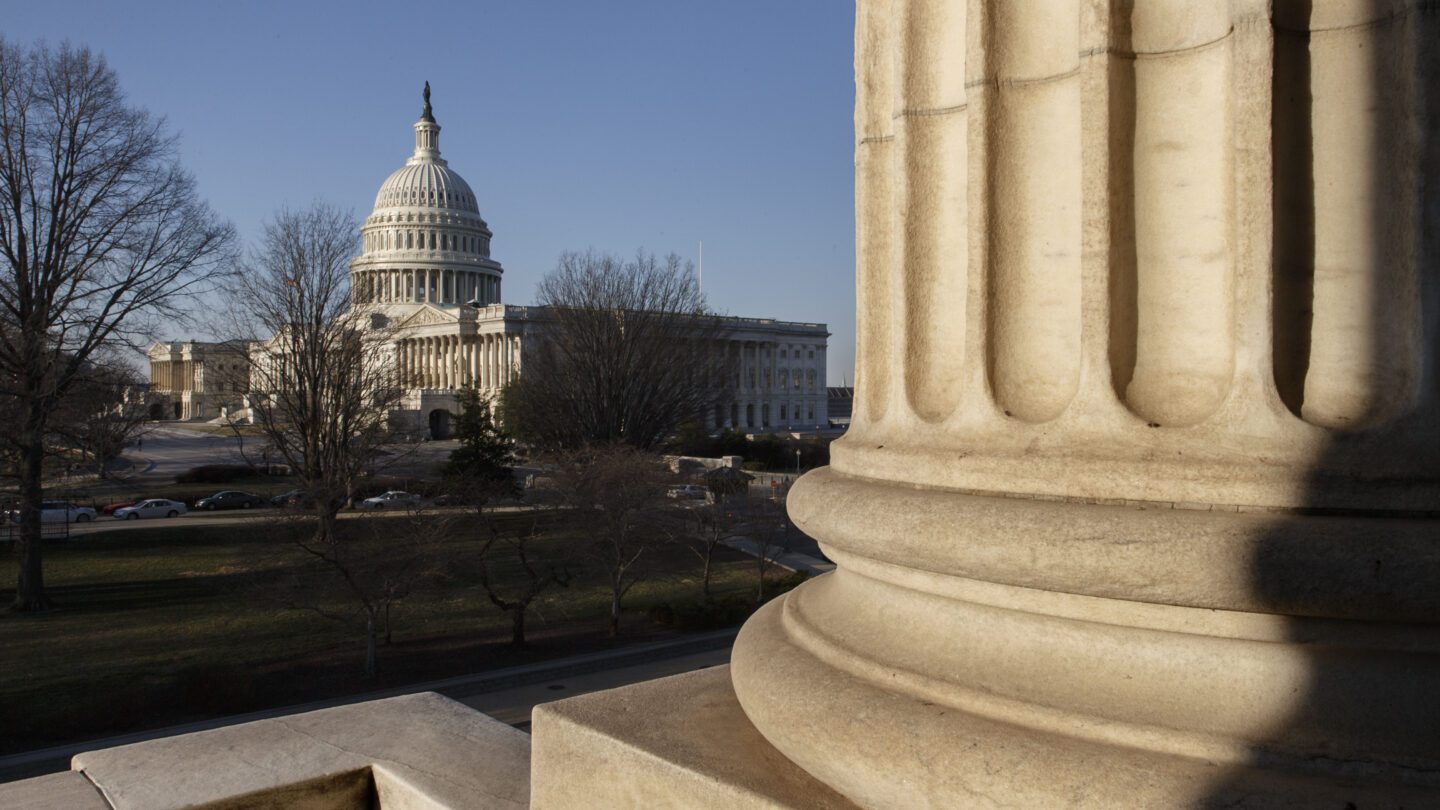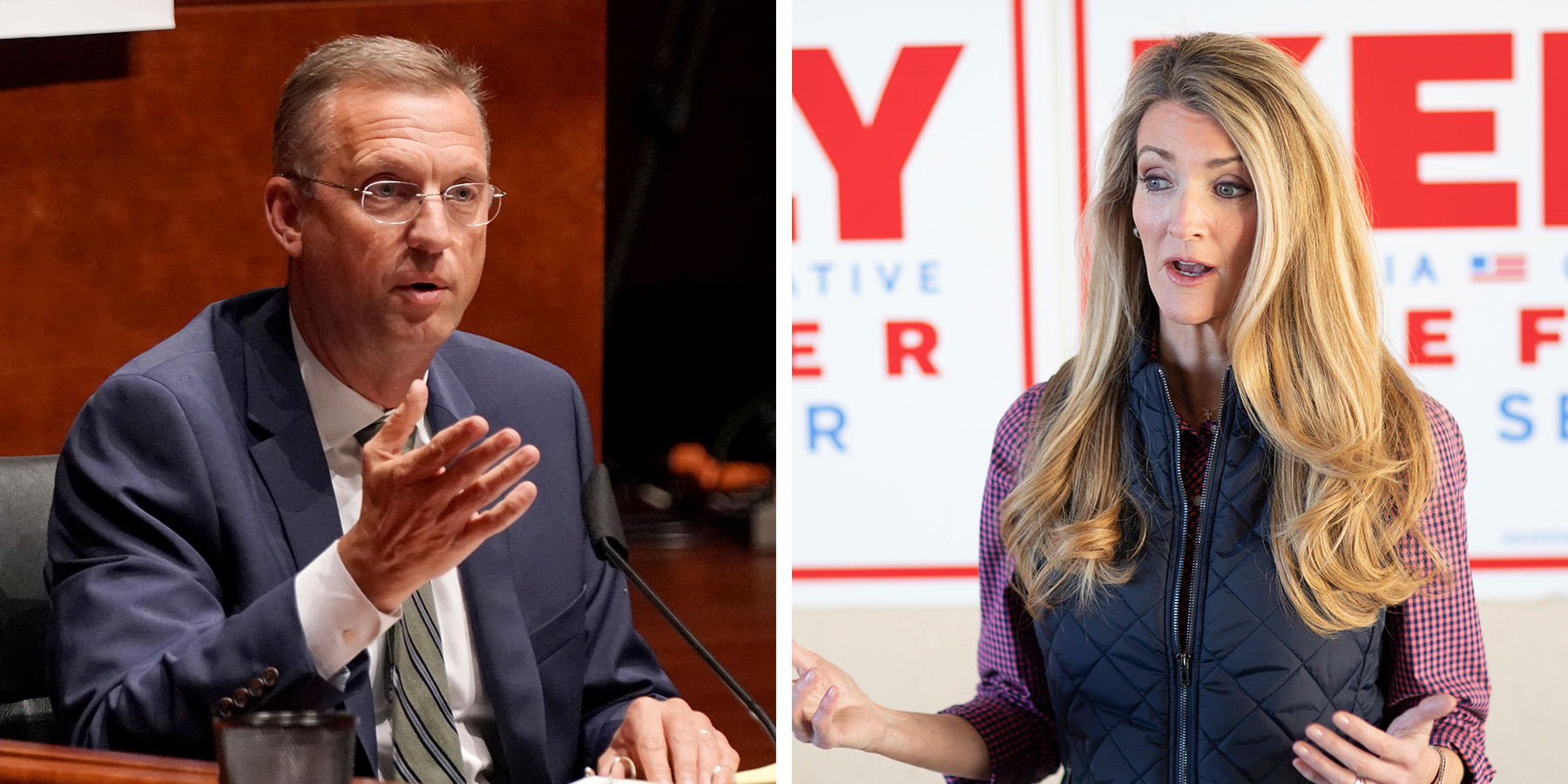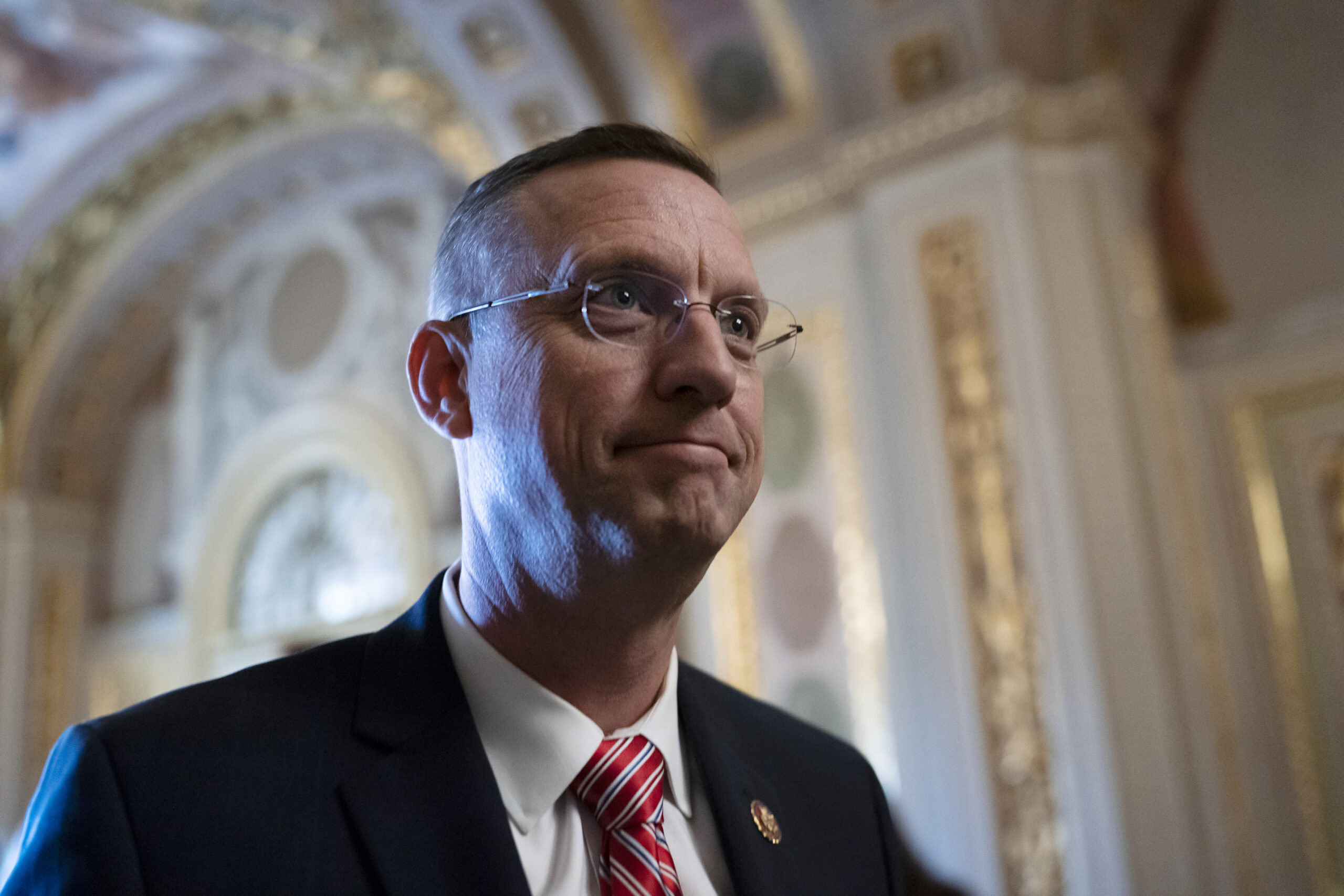House, Senate Hope To Craft Quick Anti-Drug Abuse Compromise

The morning sun illuminates the Capitol in Washington as Congress returns from a district work week, Monday, March 24, 2014. The Senate plans a procedural vote on bipartisan Ukraine aid bill today, with final passage expected later in week. President Barack Obama delved into a day of delicate diplomacy in Europe Monday as he sought … Continued
Congress is ready to start crafting compromise legislation addressing the nation’s opioid abuse crisis, which should be an easier lift than other issues facing lawmakers. The reason: Both parties have an election-year incentive to show they’re tackling a problem that is killing people in America’s biggest cities and smallest towns.
The House overwhelmingly approved 18 bills this week setting up federal grants and taking other steps to battle the drug epidemic, and prepared Friday to begin negotiations on a final package with the Senate. Members of both parties hailed the measures, though Democrats complained that none provided any money for the programs and anti-drug advocates called the bills a needed but modest first step.
“It’s a very important start, but we need dollars, we need statutory changes and we need sustained focus and attention,” said Robert Morrison, executive director of the National Association of State Alcohol and Drug Abuse Directors.
With the Senate approving its own version in March, lawmakers now hope to send President Barack Obama a compromise bill before Congress begins a long summer recess in July. This week’s House votes contrasted with the partisan disputes that have hindered congressional efforts to address the Zika virus, Puerto Rican debt and the lead-poisoned water of Flint, Michigan.
Government figures show the growing toll from misuse of opioids — addictive pain-killing narcotics and heroin — which in 2014 killed nearly 29,000 people, triple the death rate of 2000. More than 2 million people were abusing prescription opioid painkillers and nearly 500,000 more were addicted to heroin in 2012.
Rep. Doug Collins, R-Ga., said the House legislation “is saying that we have heard these sometimes silent screams, these sometimes silent tears.”
Some states where the problem is worst are also home to competitive congressional races. Among the bills’ sponsors are some lawmakers facing tough re-election campaigns, including GOP Reps. Frank Guinta of New Hampshire and Bob Dold of Illinois and Sen. Rob Portman, R-Ohio, a chief sponsor of the Senate legislation.
Obama has proposed an additional $1.1 billion to address the problem. The largest House bill, approved Thursday by 413-5, establishes grants worth $103 million annually over the next five years but provides none of the actual funds, leaving that for future spending legislation in which all federal programs will compete for funds.
The White House wrote in a statement to lawmakers that without money, the House bills “would do little to help the thousands of Americans struggling with addiction.”
The measures would create grants for programs bolstering law enforcement, monitoring prescriptions and training first responders to use anti-overdose drugs like naloxone. It would be easier for some health care providers to administer overdose reversal drugs, anti-drug programs helping pregnant women and new mothers would be renewed, and curbs would be eased against partially filling some prescriptions — a way of reducing unused opioids available to drug abusers.
Marvin Ventrell, executive director of the National Association of Addiction Treatment Providers, said the resources the legislation would potentially provide were inadequate but a step in the right direction.
Ventrell said the bills were “major in terms of message” because they were the first indications in years that Congress was moving toward addressing the issue.
To the dismay of leading House Republicans, this week’s work on the bills was overshadowed by the GOP presidential campaign and the buildup to Thursday’s meeting between presumptive nominee Donald Trump and the party’s top elected official, House Speaker Paul Ryan, R-Wis.
Underscoring Republican efforts to draw attention to the legislation, Ryan spokeswoman AshLee Strong issued a statement to journalists on Tuesday saying, “While politics may have your attention right now, we hope you’ll have time to review and write on this important and thoughtful action the House is about to take to tackle the disturbing opioid epidemic.”
9(MDAxODM0MDY4MDEyMTY4NDA3MzI3YjkzMw004))







